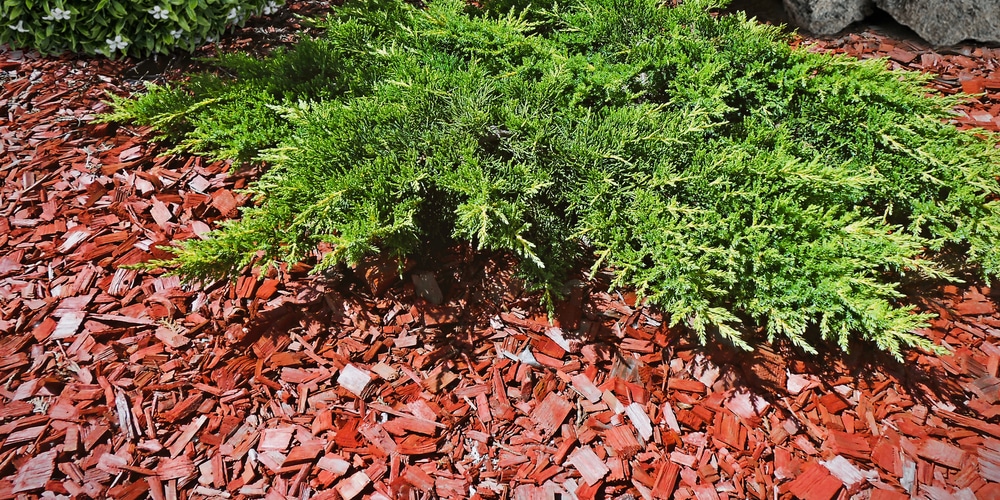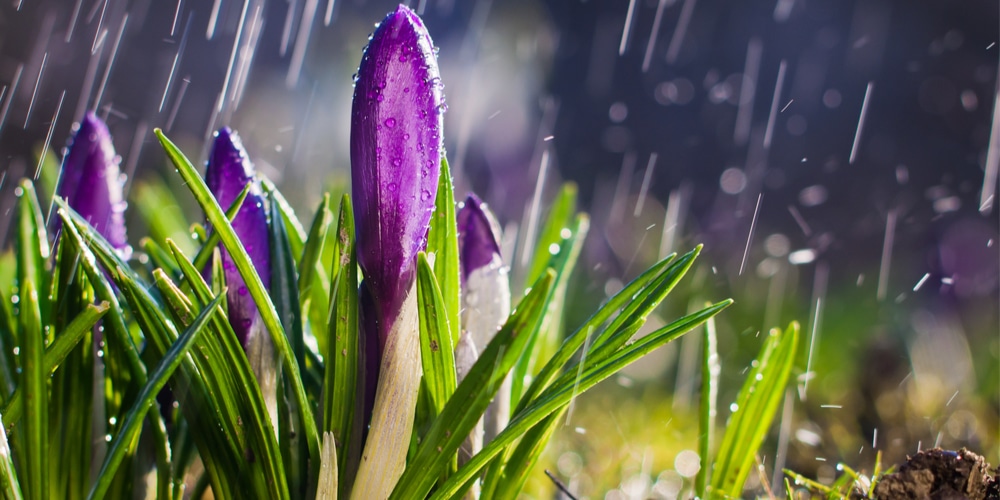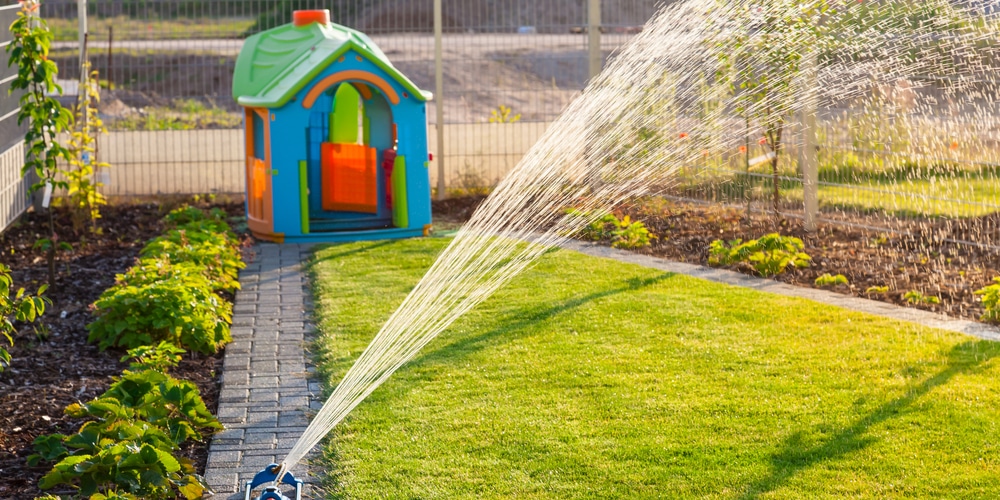Adding mulch around the plants in your flower beds and around the base of your trees can bring many benefits. Mulch helps to improve the appearance of your yard and stops weeds from growing in places you don’t want them. If you live in a hot climate, mulch is also beneficial as it helps keep moisture in the soil by reducing the evaporation rate.
If you’ve decided to use mulch in your yard, you may be wondering whether to choose cedar or cypress mulch. These two types of mulch are very popular and are used by gardeners across America. If you’re wondering what the differences are, read on. This article will compare cedar vs. Cypress mulch
Cedar vs. Cypress Mulch
There are two popular and readily available materials, either cedar mulch or cypress mulch when it comes to mulching. These both have slightly different properties and uses. If you’re looking for a mulch to use around the base of your trees, you can use either cedar or cypress mulch. The main thing to ensure is that the mulch isn’t placed right up against the trunk of the tree, as this can cause it to rot.
What is Cedar Mulch?
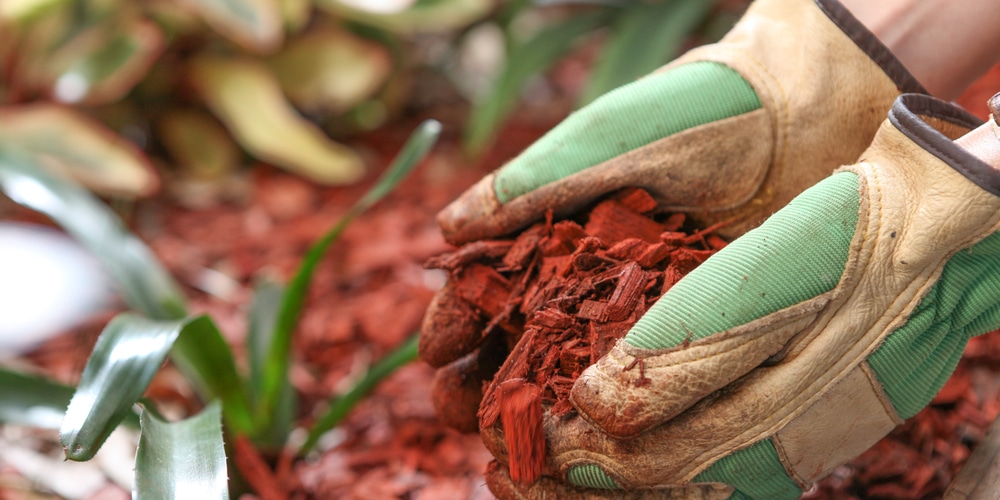
Cedar is a fantastic hardwood mulch that is safe for the environment as it’s generally naturally grown and doesn’t contain chemicals. Cedar is also more environmentally friendly as the trees are fast-growing and can be replanted after harvesting to help sustain the tree population. If you’re looking for a sustainable option, cedar mulch is for you.
Another benefit of cedar mulch is that it also creates a lovely fragrance in your yard. If you choose a good quality cedar mulch, it will be long-lasting. Cedar mulch is not only functional but also looks attractive; it’s commonly used around flowers and plants in flower beds to stop weeds from growing or around trees. The downside to using cedar mulch is that it comes with a higher price tag than cypress mulch which is a consideration for many people.
What is Cypress Mulch?
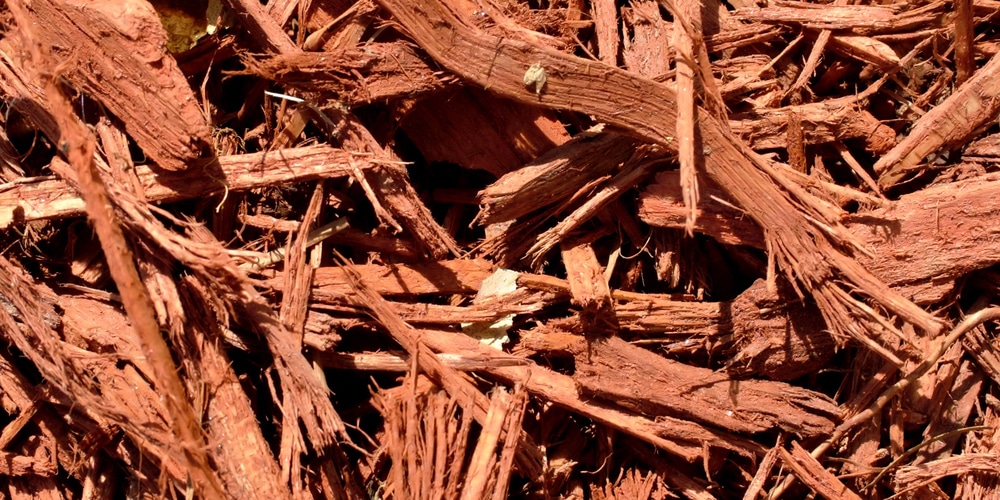
Cypress mulch is a more affordable option that is also popular with gardeners across the state. It’s made from the bark, branches, and trunk of the cypress tree and also includes ground-up leaves.
Cypress trees grow naturally in wetland areas and are particularly common in the southern states. They provide habitats for birds and animals and also help to filter pollutants from the environment. Cypress has been a very popular mulch for years, but recently it has become slightly controversial due to its environmental impact. Only a small number of trees are available, and cutting the trees down is destroying the natural habitats of many animal and bird species. Many people think that Cypress trees shouldn’t be used as mulch.
That being said, cypress does create an excellent mulch that can be used around flowers, shrubs, and trees. It can also be used to dry out wet areas of your yard as it’s very good at absorbing water and can even be used to make paths.
Which Mulch Is Best for Dealing with Insects?
Due to its strong odor, cedar mulch is excellent if you have an infestation of insects in your yard as it can repel many different insect varieties. The downside of this is that cedar will repel beneficial insects such as bees and other pollinators that you want to attract to your yard. If you have a termite problem, sprinkling cedar mulch around the affected area will help to reduce the population. Termites don’t like the smell of cedar mulch and will move out of your yard.
On the other hand, Cypress mulch can actually attract termites, so don’t use this mulch if there are many termites as they’ll be attracted to your yard. Cypress mulch that’s been harvested from the old growth of a cypress tree can help to repel insects. However, it’s hard to find cypress mulch to use as an insect repellent as all the older trees have been cut down and younger growth isn’t an effective repellent for most insects.
Which Mulch Is Best for Absorbing Water
One of the main reasons gardeners use mulch is because they want to improve soils water retention. This is particularly important if you live in a hot climate as it the right mulch can reduce the amount of water that evaporates from the soil.
If you’re looking for a mulch that will help your soil retain water, you may need to choose a different kind of mulch. Unfortunately, cedar and cypress mulch aren’t very good at keeping moisture in the soil. They are more likely to absorb the moisture, which means your plants will need to be given extra water, or they will suffer.
Using mulch like cedar and cypress is beneficial if you have areas of your yard that are waterlogged. Covering the area with mulch will mean that it’s absorbed and will be less muddy and easier to walk over.
Watering Your Plants
After reading the above information, you may be thinking that cedar and cypress don’t make good mulches. This isn’t entirely true. You just need to take their water-absorbing properties into consideration when watering your plants. Ensure you give your plants a good watering so that the mulch is drenched and the soil and plants can get the water they need. It’s best to use a soaker hose if you’re watering a large area. You may also like to try mixing the mulch with leaves and grass as these will help more water reach your soil.
Nutrients
It’s also worth noting that cedar is long-lasting and doesn’t deteriorate. This means that the soil and plants won’t absorb any additional nutrients if you use cedar mulch. On the other hand, Cypress will begin to deteriorate and rot down, eventually mixing with the soil with the help of worms and microorganisms and adding nutrients to the soil, which will be beneficial to plant growth.
Conclusion: Cedar vs. Cypress Mulch
Cedar is usually the better choice when comparing cedar vs. cypress mulch
Cedar and Cypress mulch are both beneficial and can be used around trees and flower beds. If you want to use environmentally friendly mulch, cedar is a perfect choice. It’s also long-lasting and is excellent at repelling insects, such as termites.
